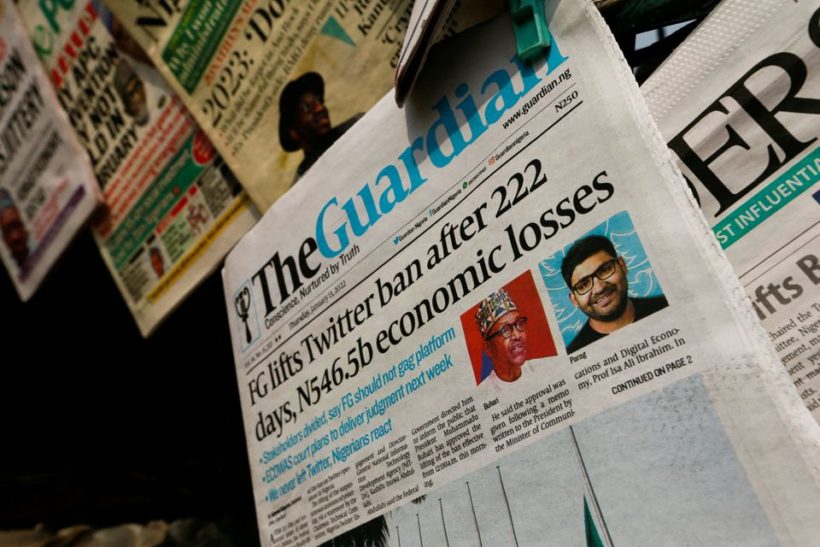
ABUJA, Jan 13 (Reuters) – Nigerians on Thursday reacted with mingled relief and indifference to the government’s decision to lift a ban on Twitter, saying many in Africa’s biggest economy had stayed connected via virtual private networks (VPN).
For model Kingsley Osine, the government’s decision to end the restriction gave Nigerians their voices back.
“It didn’t really stop most of us from tweeting, but we were tweeting with fear you know, but now we can tweet freely, we can air our voices freely,” said Osine.
Announcing the end of the seven-month suspension, the government said on Wednesday the U.S. social media giant had agreed to establish a local office among other conditions set by the west African nation.
Twitter said it was pleased with its restoration in Nigeria and was deeply committed to the country.
“It (suspension) didn’t really change so much for my social life because I was still able to interact with a lot of people on Twitter who were using VPN,” said Benjamin Hon, an Abuja-based musician and content producer.
Read more: Nigeria lifts Twitter ban from midnight, government official says
The Twitter ban, however, hurt some Nigerian businesses as it drew condemnation for its effect on freedom of expression and the ease of doing business in Africa’s most populous nation.
On Twitter, some Nigerians said the decision by President Muhammadu Buhari’s government had been reached to ease widespread anger about the ban ahead of elections set for 2023.
Social media is expected to be an important tool in political campaigning ahead of the contest.
The government suspended Twitter on June 4 after it removed a post from Buhari that threatened to punish regional secessionists. Telecoms companies subsequently blocked access to users in Nigeria.
Amnesty International Nigeria welcomed the lifting, describing the ban as an attack on the right to free expression that had deprived Nigerians of “a social media platform that facilitates dialogue and empowers everyone to communicate.”
(Reporting by Abraham Archiga, writing by MacDonald Dzirutwe, Editing by William Maclean)

